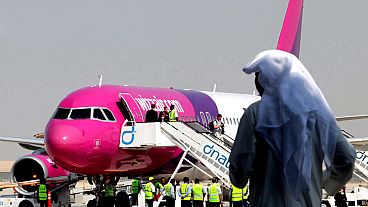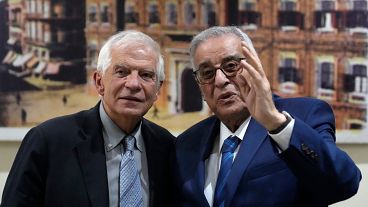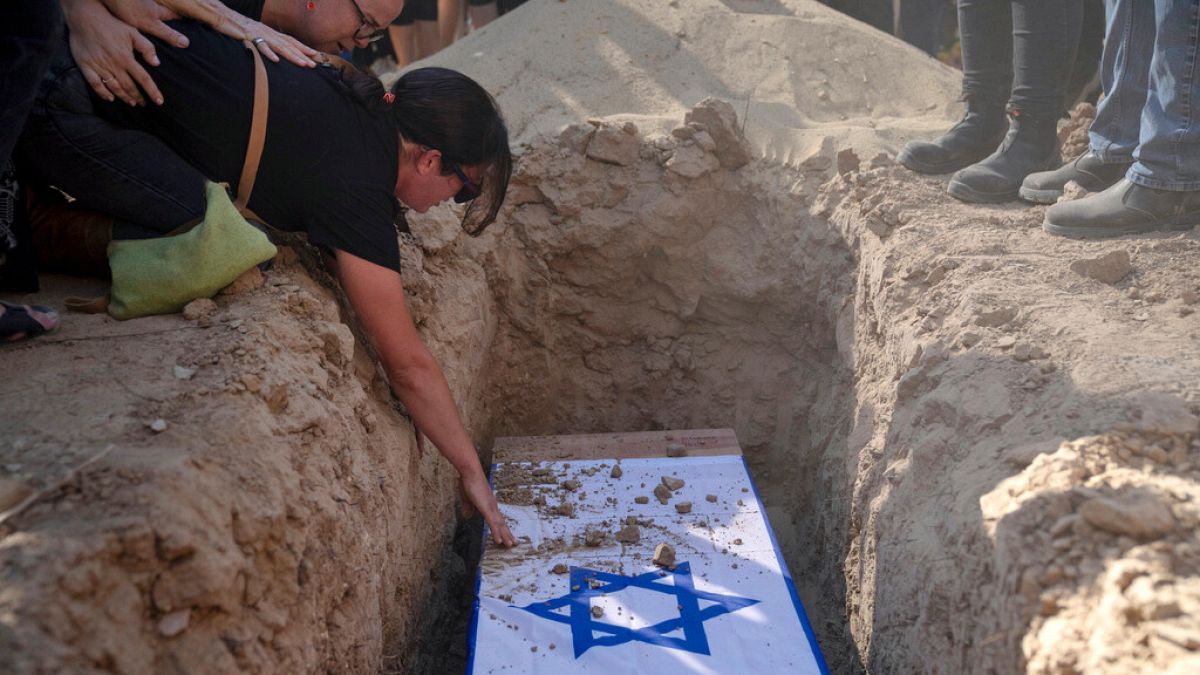The attack comes after US Secretary of State Antony Blinken met with key mediators from Egypt and Qatar to press ahead with a ceasefire deal between Israel and Palestinian militant group Hamas.
Lebanon’s Iran-backed Hezbollah launched over 50 rockets on Wednesday, hitting a number of private homes in the Israeli-annexed Golan Heights.
Hezbollah said Wednesday's attack was in response to an Israeli strike deep into southern Lebanon on Tuesday night.
Diplomatic efforts to secure a ceasefire between Israel and Hamas have doubled as fears grow of a wider regional war following the targeted killings of Hamas and Hezbollah leaders in Iran and Lebanon.
Shortly before the attack, US Secretary of State Antony Blinken met with fellow mediators from Egypt and Qatar in order to secure a ceasefire deal.
Blinken suggested to reporters that Israel had agreed to a "bridging deal", however officials in Egypt expressed skepticism to Associated Press that Hamas would not agree to the deal for various reasons, including cynicism that Israel would truly remove its troops from Gaza and end the war.
One Egyptian official, with direct knowledge of the negotiations, said the bridging proposal requires the implementation of the deal’s first phase: the release of the most vulnerable Israeli civilian hostages held by Hamas in Gaza.
The parties would then negotiate the second and third phases without offering any “guarantees” to Hamas from either Israel or the mediators.
“The Americans are offering promises, not guarantees,” the official said. “Hamas won’t accept this, because it virtually means Hamas will release the civilian hostages in return for a six-week pause of fighting with no guarantees for a negotiated permanent ceasefire.”
He also said the proposal doesn’t clearly say whether Israel would withdraw its forces from two strategic corridors in Gaza, the Philadelphi corridor alongside Gaza's border with Egypt and the Netzarim east-west corridor across the territory.
Israel has reportedly offered to downsize its forces in the Philadelphi corridor, with “promises” to withdraw from the area, he said.
“This is not acceptable for us and of course for Hamas,” the Egyptian official said.
The evolving ceasefire deal touted by the US calls for a three-phase process in which Hamas would release all hostages abducted during its October 7 attacks. In exchange, Israel would withdraw its forces from Gaza and release Palestinian prisoners.
Hamas is believed to be holding around 110 hostages captured during the attacks that started the war.
Israeli authorities estimate around a third are dead. During the October 7 attacks, Hamas militants killed some 1,200 people, mostly civilians.
Israel’s retaliatory offensive has killed over 40,000 Palestinians, according to Gaza’s Health Ministry, which does not distinguish between civilians and combatants in its count. The war has caused widespread destruction and forced the vast majority of Gaza’s 2.3 million residents to flee their homes, often multiple times.












